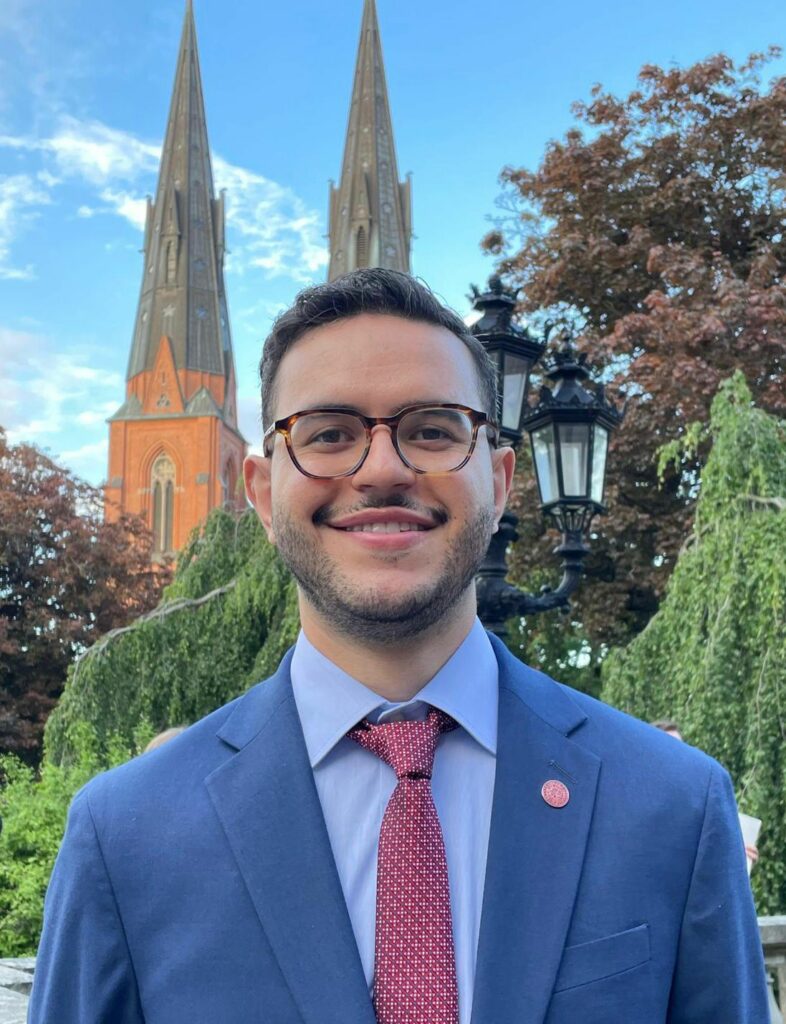Pablo Porragas Paseiro
DC 9 - Cell-free synthesis of RNA aptamers on a biochip
About your project
My project will be dedicated to cell-free synthesis of RNA aptamers on a biochip. My time at TUDa will be focusing on the preparation of RNA aptamers, while at TVU I will be working on understanding the development of DNA/RNA responsive elements with DNA-protein conjugates.
Main Supervisor: Dr. Ralf Strasser (DBS)
Co-Supervisor: Prof. Beatrix Suess (TUDa)
Supervisor: Prof. Francesco Ricci (TVU)
Supervisor: Prof. Beatrix Suess (TUDa)

About you
I received a Bachelor’s Degree from the University of Colorado at Boulder in Integrative Physiology in 2019. At Boulder I performed my main project work on tryptophan metabolism in the central nervous system and the periphery with a special focus on the microbiome. During this project I was fascinated by the specialized role that microorganisms have in our daily lives and in the balance they govern between healthy and diseased states. This led me to pursue a Master’s degree in Infection Biology from Uppsala University where I learned about the two sides of the microbial world. On one side, certain microbes cause severe diseases that can be very difficult to treat. However, on the other side a diverse and flourishing microbial community is essential to our every-day health. For my master’s thesis I studied this delicate balance at the Institute for Infectious Diseases at the University of Bern in Switzerland. Here I worked on the epidemiology, risk factors, hidden gut resistome and characterization of multidrug-resistant Enterobacterales colonizing the intestinal tract of Swiss expatriates. In this work we revealed that there is a significant rate of intestinal colonization with these multidrug-resistant bacteria in Swiss expatriates stationed throughout the world. This highlighted the importance of studying multidrug-resistant bacteria colonisations in populations that were not previously studied revealing important insight into the global epidemiology of these resistant isolates.
During my Master thesis I was fascinated by the impact that targeted research can have on a global scale and looked for a team that was striving to achieve the same goal. I was attracted to the SYNSENSO projects and specifically to Dynamic Biosensors because they are dedicated to enabling researchers to discover breakthroughs in many areas of scientific exploration including in infectious diseases and drug discovery which I am especially motivated by. The SYNSENSO projects highlight the impact that synthetic biology can have and how this field will continue to grow in the coming years. Personally, I hope to use these motivations to demonstrate how synthetic biology will play a central role in the progression of scientific research. Through the specialized design and application of combinatorial biosensors I believe we, as a network, will exemplify the value of these machines in research in life-science, infectious diseases, cancer, and in environmental monitoring and am proud to represent the SYNSENSO network.
